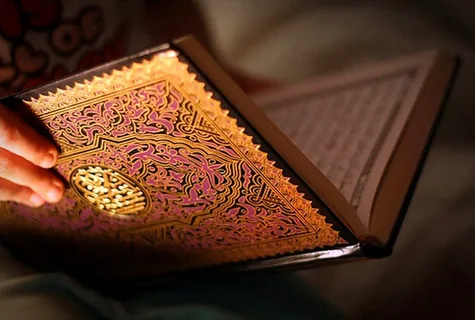The Quran, considered the holy book of Islam, holds a unique and revered position in the hearts of millions worldwide. Understanding the origins of the Quran is crucial for a comprehensive appreciation of its teachings and impact on individuals and societies, in this article on Arabian Tongue website we will explorer where does the quran come from.
Historical Context of the Quran

In the 7th century, the Quran was revealed to Prophet Muhammad by the Angel Gabriel over a period of 23 years. This divine communication served as a guidance for humanity, addressing various aspects of life and morality.
The process of revelation involved moments of solitude and meditation, emphasizing the importance of contemplation and introspection in spiritual growth.
where does the quran come from
During the Prophet’s lifetime, the Quranic verses were compiled in written form and memorized by his followers. Caliph Uthman later organized a standardized version to ensure uniformity. The preservation of the original text has been a testament to the meticulous care taken in maintaining the Quran’s integrity.
Information about Quran
The Quran’s authenticity is reinforced by the oral transmission of its verses through generations. The emphasis on memorization as a means of preservation has resulted in a large community of Muslims who can recite the entire Quran from memory.
Quranic manuscripts from different periods provide additional evidence of the text’s consistency over centuries.
The Quran as a Linguistic Miracle
The linguistic aspects of the Quran are often highlighted as miraculous, with its eloquence and literary style considered unparalleled. The use of metaphors, analogies, and rhetorical devices adds depth to its message, making it a unique literary masterpiece.
Translations and Interpretations
Translating the Quran presents challenges due to the nuances of the Arabic language. Context is crucial in interpreting verses accurately, preventing misunderstandings that may arise from a literal translation. Scholars emphasize the need for a holistic approach to comprehend the intended meaning.
Global Impact of the Quran
The Quran’s influence extends beyond religious boundaries. The spread of Islam has been accompanied by a profound impact on literature, art, and various aspects of cultural expression. Its teachings continue to resonate in diverse societies globally.
Misconceptions Surrounding the Quran’s Origin
Addressing misconceptions is essential in fostering a clear understanding of the Quran. Clarifying misinterpretations and debunking common myths can dispel stereotypes and encourage informed dialogue.
Quranic Sciences and Studies
A multitude of disciplines, collectively known as Quranic studies, delve into different aspects of the Quran. Academic research and discoveries contribute to a deeper understanding of the historical, linguistic, and cultural context surrounding the Quran.
Personal Connection with the Quran
On an individual level, establishing a personal connection with the Quran involves not only reading but also reflecting on its verses. Many find solace and guidance in the Quran’s teachings, shaping their moral compass and spiritual outlook.
Challenges in Preserving the Quranic Text
In the face of evolving threats, the preservation of the Quranic text remains a paramount concern. Efforts to safeguard the Quran include advanced conservation techniques and digitization projects.
FAQs
Is the Quran translated into different languages?
Yes, the Quran has been translated into numerous languages to make its teachings accessible worldwide.
How was the Quran compiled during Prophet Muhammad's time?
The Quranic verses were compiled in written form and memorized by followers during the Prophet's lifetime.
What makes the Quran a linguistic miracle?
The Quran is celebrated for its eloquence, literary style, and the use of rhetorical devices, making it a linguistic masterpiece.
Are there misconceptions about the Quran's origin?
Yes, various misconceptions surround the Quran's origin, often stemming from misinterpretations or misinformation.
What challenges exist in preserving the Quranic text today?
Challenges include physical degradation of manuscripts and the need to adapt to evolving technological threats.
Conclusion
In tracing the origins of the Quran, we unravel a tapestry of historical, linguistic, and spiritual dimensions. The Quran’s continued relevance lies in its ability to transcend time and resonate with diverse audiences globally.



